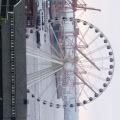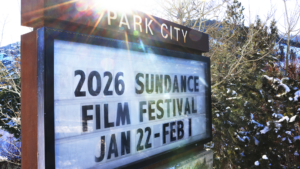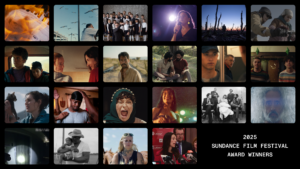Julia Meltzer, Director, The Light In Her Eyes
September 5, 2013
The morning of September 5th is grey and rainy in the Pacific Northwest. I scroll through my twitter feed first thing, taking in the update on the Syria crisis. The photo that seems to be spreading all around the social media networks this morning is of a line of Syrian rebel fighters standing above a crouching row of Syrian soldiers who are shirtless and have guns pointed at their heads. The headlines are REBEL BRUTALITY IN SYRIA POSING DILEMMA IN WEST. I want to say, REBEL BRUTALITY IN SYRIA POSING DILEMMA IN SYRIA. As I comb through this morning’s stories, I think of all the women and girls who we spent so much time with and I wonder, what are they doing? Why do we hear nothing from them in the news? Uhhh, perhaps because they don’t carry guns and kill babies? Very much counter to this picture, I’m sure they are sitting in their homes, distraught and saying, “These people, both rebels and regime, do not represent my view, my experience, or the future that I want.”
It is much later in the day, after Jerry’s Truman Middle School screening, that we head off to the University of Puget Sound to screen our film at their library. I’m anticipating a small crowd. We arrive an hour before the screening begins and there are signs that people will show up for this screening. Edward, a very kind and enthusiastic young cinephile who is majoring in Anthropology, helps us with the tech check. As has been the case at other screenings in the Pacific Northwest, all participants enthusiastically welcome us.
The activation question that I have been asking audiences is to have them imagine what life in Syria was like before the uprising. It has been eye-opening for me to see how much educated viewers we have before us. Audience members respond by describing the Syria that I know—Damascus is a beautiful city and Syrians are a very hospitable people, Syrians are ruled by a minority sect, the Alawites.
At the University of Puget Sound library the room is packed and people are sitting on the floor and on the counters. After the film is over Professor Touran Kyogulu, a lovely Political Science professor who hails from Istanbul, helps moderate the Q&A. Questions about the social class of the girls, about how “progressive” Houda looks in contrast to the “conservative” clerics. In the audience is a student whose grandfather visited Syria in the 60s, he was a Japanese adventurer who loved travel and said that Syria was filled with interesting ruins and the people were warm and generous. His grandson who stands before me says that his grandfather passed on his sense of curiosity and adventure to him. He has many questions for me about Syria.
Again and again, I am really and truly astounded by how many knowledgeable people are in the audience. The Q&A could go on and on. After the discussion, Meredith pulls me away from the crowd insisting that we get over to the Grand Cinema where Jerry is screening for the running club of Tacoma! I joke with her that this is one of the only times that she has forced a post discussion to end.
Back at the Grand there are runners milling about the street corner and the theater is completely full, not a seat to be had. I love the feeling in the Grand Cinema, it is a thriving place in a small town where people want to come and see films and engage. I remember that this is the reason why people live in a small town—so much easier to connect and talk.
After the screening and Q&A is over, and I have purchased my requisite GRAND CINEMA sweatshirt, we take a photo in front of the theater to mark the moment. It is 10:30 am and on the drive back to the hotel in Seattle it is pouring rain, lightening strikes so close to us we all can practically feel it. All of us are lost in thought after a long full day, the windshield wipers slosh at full speed and it feels satisfying to bring the perspectives that our films offer to the world up here in the Pacific Northwest.
September 6, 2013
The next day we are up and out the door at 7:15 am to do a few high school screenings. I’m feeling sympathetic towards the 2 classes of freshman who are asked to watch our film so early in the morning, even though their teacher Cora Mackoff is incredibly open and enthusiastic. She is the model high school teacher who everyone loves. Her room is covered with posters, comfortable chairs populate the corners with throw pillows. She has mastered the art of de-institutionalizing the space of public education.
It’s not easy to be thrown into the world of the women’s mosque first thing in the morning. The students are attentive during the screening and we have only 1 sleeper. During the Q&A, many students share their opinions about the US role in Syria and mostly reflective of the population, there are more who are against the US engagement than for it. A young bright eyed girl in the back of the room is articulate—she says that the film has given her both a more positive and more negative picture of Islam. It certainly is complex and there are no easy answers. This was the challenge of making this film.
September 7, 2013
And, all too quickly, we have arrived at the last day of the trip, which will be spent at the Seattle Art Museum. The museum is buzzing with activity as all the films are screening in various rooms and the main theater as well. I decide to run into La Misma Luna to see it on the big screen. What a tear-jerker! I couldn’t stop crying. Good job Patricia Riggen!
And then, into the cold theater where our film will screen. There is an audience here, all fighting the air conditioning by donning scarves. For the Q&A, I am joined by Julia Ismael and Ann Homes Redding who add a much needed perspective on what it is actually like to be a Muslim woman. The audience is once again engaged and inquisitive, stereotypes are being smashed for those who had them. And after the Q&A, we rush down the hall to a round-table discussion with Seattle documentary filmmakers. Jerry and I are worn out after a slew of Q&As over 4 days, but happy to sit in a circle and drink wine. The discussion is drawing to a close, and I have to rush out and catch a plane so I don’t have time to linger as I would like and meet folks. A young woman who is working on finishing a film set in Kathmandu comes up to me and gives me a big hug.
“I loved your film, and I felt your pain…every frame of it.”
Yes, spoken like a filmmaker—it’s nice to have kindred spirits in the audience.




